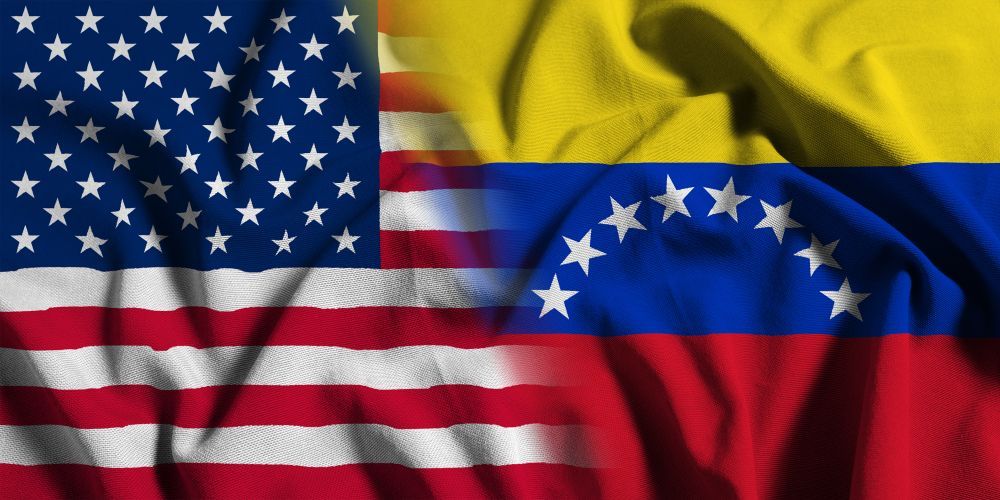The U.S. and Venezuela: Open Escalation
Ryan Parada • October 22, 2025

Rapid Escalation at Sea
Since late September, Washington has launched a string of air and naval strikes targeting drug trafficking vessels operating off the Venezuelan coast.
In early October, U.S. forces confirmed their fourth such strike, killing four individuals aboard a drug-running boat in international waters. Days later, President Trump announced another strike that left six dead, the administration described those involved as “narcoterrorists.” On October 19, a further attack reportedly killed three members of Colombia’s National Liberation Army (ELN) who were allegedly using a smuggling vessel for transport.
Some context: The ELN is a communist insurgency group operating mostly in Columbia, using terrorism as a means to push their extremist ideology. The USA has labeled ELN as a terrorist organization since 1997. Since 2014 the ELN has been aligned with the Maduro regime in Venezuela. As of January of 2025, peace talks between the ELN and the Colombian government have been suspended due to ongoing violence and kidnappings.
By mid-October, reports suggested between 27 and 32 fatalities linked to U.S. operations, an unmistakable signal that the campaign has moved well beyond intelligence sharing and regional support. American armed forces, and likely U.S. intelligence assets, are now engaging directly.
Declaring an “Armed Conflict”
On October 1, the administration formally notified Congress that it considers the ongoing campaign a “non-international armed conflict” against “unlawful combatants.” That language effectively allows the U.S. to treat cartel actors as military targets rather than criminal suspects, a controversial shift that rightfully places counter-narcotics under the same legal umbrella as counter-terrorism.
Covert Action Moves Into Venezuela
Just two weeks later, President Trump publicly acknowledged authorizing CIA operations inside Venezuela. The stated justification: to disrupt narcotics networks and respond to reports that the Maduro government has released prisoners toward the U.S. border. Details remain scarce, but it marks a serious escalation, the first hint of U.S. intelligence activity on Venezuelan soil since the height of the Bolivarian crisis.
Regional Pushback
Venezuela’s ‘President’ Nicolás Maduro immediately denounced the U.S. strikes as violations of sovereignty and as preparation for regime change. Colombia followed with its own protest after a U.S. strike allegedly killed a Colombian fisherman; Columbian President Gustavo Petro accused Washington of “murder” and recalled his ambassador.
Meanwhile, U.S. B-52 bombers and naval assets have been sighted near Venezuelan airspace and waters, a show of force that has fueled speculation that broader operations could be coming.
What Comes Next
Potential Strikes on Venezuelan Soil
— A move from maritime to land-based targets would mark a dramatic escalation and invite serious international backlash.
Evolving Cartel Routes
— As the Caribbean narrows, traffickers will adapt, potentially rerouting through Central America or the Pacific, testing the limits of regional enforcement capacity, and may show how quickly the US can adjust counter-cartel resources and efforts.
Diplomatic Realignments
— The coming months will test the resilience of U.S. relationships with Colombia, Brazil, and the Caribbean states. Though some may stray due to increased kinetic strikes, these strokes will ensure a safe, and prosperous Caribbean in the long term. For far too long, these corridors have been ripe with drug trafficking, harming trade, diplomatic relations, tourism, and regional stability.
Bottom Line
In less than a month, the U.S. — Venezuela situation has morphed from a regional counter-narcotics push into an open military confrontation with unlawful combatants from several different cartel and cartel supporting groups. For the whole Caribbean, the stakes are rising fast, but something to keep in mind: The Trump Administration has been able to quickly start and end fights in the past, I see no difference here.
Ryan Parada is a Partner and the Chief Government Affairs Officer for Connector, Inc. where he oversees both domestic and international portfolios. He is a policy expert for our clients in numerous areas, including national security, energy, and the tobacco industry.
